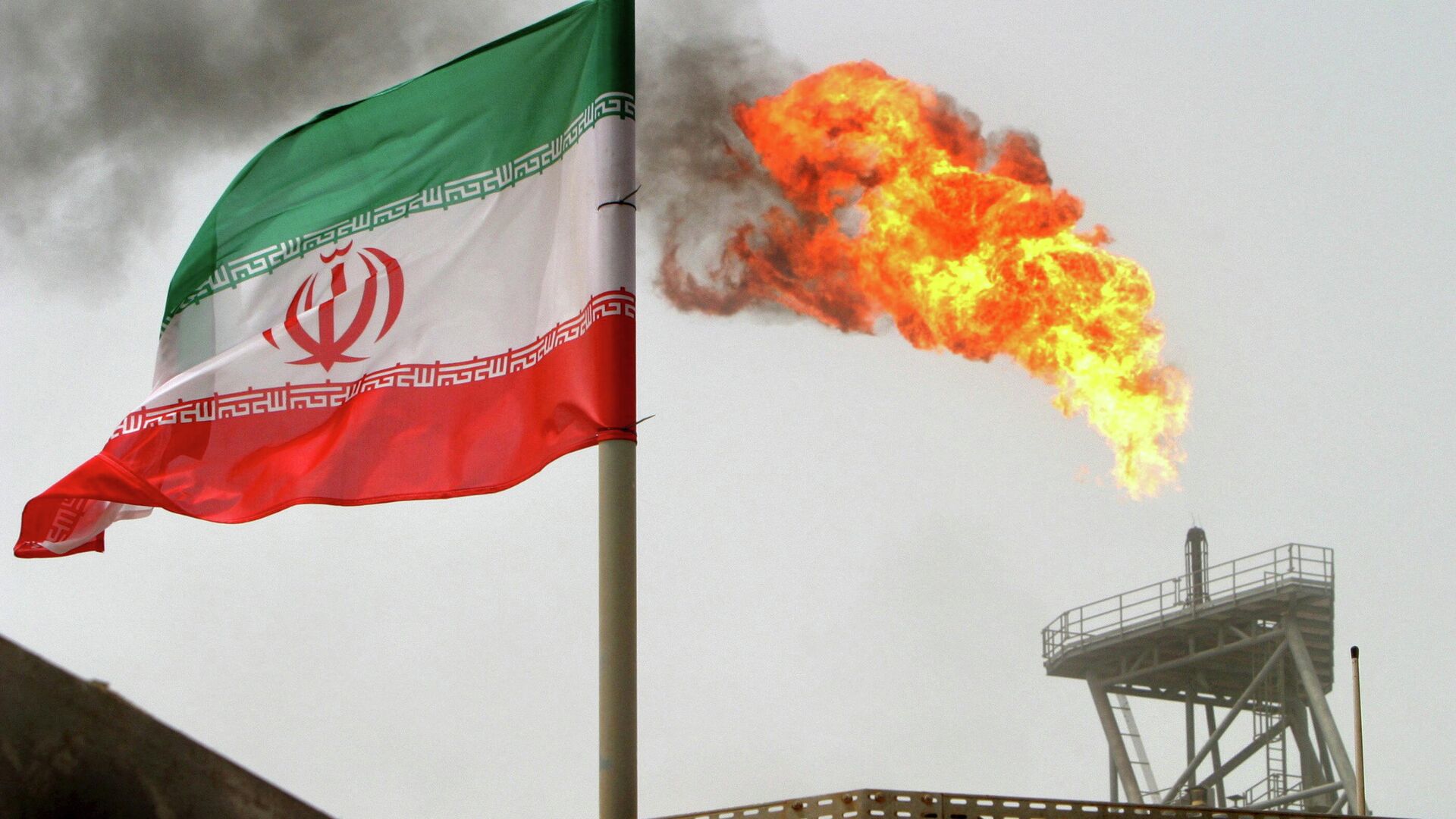https://sputnikglobe.com/20220314/majority-of-us-republican-senators-vow-to-not-back-new-nuclear-deal-with-iran-1093873454.html
Majority of US Republican Senators Vow to Not Back New Nuclear Deal With Iran
Majority of US Republican Senators Vow to Not Back New Nuclear Deal With Iran
Sputnik International
Officials from Iran and the EU announced last Friday that talks on reviving the nuclear deal, which had been close to the end, had been put on hold due to... 14.03.2022, Sputnik International
2022-03-14T22:36+0000
2022-03-14T22:36+0000
2023-07-31T16:59+0000
iran
us
senator
us senate
nuclear talks
iran nuclear deal
https://cdn1.img.sputnikglobe.com/img/07e6/03/0e/1093874857_0:0:2803:1577_1920x0_80_0_0_b83d542c0f56c3869243a3d23688ab04.jpg
All but one Republican senator wrote to President Joe Biden on Monday, expressing worry that a renewed nuclear deal with Iran would allow Tehran to enhance its economic and military development through weakened sanctions, as well as strengthen its ties with Russia and China. In a letter signed by 49 GOP senators, with only Sen. Rand Paul of Kentucky refraining, the senators are putting pressure on Biden to abandon the negotiations, claiming that lifting sanctions on Iran will strengthen the country's authorities and jeopardize America's geopolitical interests.According to them, the Biden Administration seems to "have given away the store." The senators argued that the White House "appears to have agreed to lift sanctions that were not even placed on Iran for its nuclear activities in the first place, but instead because of its ongoing support for terrorism and its gross abuses of human rights."The Republicans condemned the administration for declining "to commit to submit a new Iran deal to the Senate for ratification as a treaty, as per its constitutional obligation, or for review under statutory requirements that passed on a bipartisan basis in response to the 2015 deal."They promised to do everything possible to undo an agreement that does not "completely block" Iran's capacity to produce nuclear weapons, limit its ballistic missile program, or "confront Iran's support for terrorism." Tehran consistently claims it has never worked on developing nuclear weapons, and also regularly conducts anti-terrorist operations in the region.On Monday, an Iranian foreign ministry spokesman said that Washington needs to make a decision in order to reach an agreement.In Sunday's address, former Israeli Prime Minister Benjamin Netanyahu criticized the powers still negotiating a nuclear deal, calling it "absurd" and "downright dangerous" to continue debating with Tehran in Vienna.Iran has reportedly accelerated its nuclear program since former US President Donald Trump unilaterally pulled the US from the Joint Comprehensive Plan of Action (JCPOA) in 2018, increasing pressure on the West to reengage to prevent Tehran's nuclear capability. The 2015 nuclear agreement between Iran and foreign powers, struck under US President Barack Obama, limited Iran's uranium enrichment program in exchange for the removal of international sanctions against the country. A few Democrats also voiced their displeasure. The Iran Nuclear Agreement Evaluate Act (INARA) of 2015 gives Congress the power to review an agreement, but after failing to do so in 2015 while Republicans controlled Congress, lawmakers are unlikely to be able to veto a deal entirely, according to reports.Let's stay in touch no matter what! Follow our Telegram channel to get all the latest news: https://t.me/sputniknewsus
https://sputnikglobe.com/20220312/gop-senator-claims-weak-biden-counted-on-putin-to-get-iran-to-cut-nuclear-deal-with-us-1093808791.html
iran
Sputnik International
feedback@sputniknews.com
+74956456601
MIA „Rosiya Segodnya“
2022
News
en_EN
Sputnik International
feedback@sputniknews.com
+74956456601
MIA „Rosiya Segodnya“
Sputnik International
feedback@sputniknews.com
+74956456601
MIA „Rosiya Segodnya“
iran, us, senator, us senate, nuclear talks, iran nuclear deal
iran, us, senator, us senate, nuclear talks, iran nuclear deal
Majority of US Republican Senators Vow to Not Back New Nuclear Deal With Iran
22:36 GMT 14.03.2022 (Updated: 16:59 GMT 31.07.2023) Kirill Kurevlev
Managing Editor
Officials from Iran and the EU announced last Friday that talks on reviving the nuclear deal, which had been close to the end, had been put on hold due to "external factors." A move by US authorities to seize two Greek ships transporting "Iranian oil" is said to be one of the reasons for the halt.
All but one Republican senator wrote to President Joe Biden on Monday, expressing worry that a renewed nuclear deal with Iran would allow Tehran to enhance its economic and military development through weakened sanctions, as well as strengthen its ties with Russia and China.
In a
letter signed by 49 GOP senators, with only Sen. Rand Paul of Kentucky refraining, the senators are putting pressure on Biden to abandon the negotiations, claiming that lifting sanctions on Iran will strengthen the country's authorities and jeopardize America's geopolitical interests.
According to them, the Biden Administration seems to "have
given away the store." The senators argued that the White House "appears to have agreed to lift sanctions that were not even placed on Iran for its nuclear activities in the first place, but instead because of its ongoing support for terrorism and its gross abuses of human rights."
“The nuclear limitations in this new deal appear to be significantly less restrictive than the 2015 nuclear deal, which was itself too weak, and will sharply undermine US leverage to secure an actually ‘longer and stronger’ deal,” the letter said.
The Republicans condemned the administration for declining "to commit to submit a new Iran deal to the Senate for ratification as a treaty, as per its constitutional obligation, or for review under statutory requirements that passed on a bipartisan basis in response to the 2015 deal."
"Additionally, despite earlier promises to the contrary, the administration has failed to adequately consult with Congress," the lawmakers said.
They promised to do everything possible to undo an agreement that does not "completely block" Iran's capacity to produce nuclear weapons, limit its ballistic missile program, or "confront Iran's support for terrorism." Tehran consistently claims it has never worked on developing nuclear weapons, and also regularly conducts anti-terrorist operations in the region.
As for Sen. Paul, he reportedly told the media upon the letter's publication that "condemning a deal that is not yet formulated is akin to condemning diplomacy itself, not a very thoughtful position."
On Monday, an Iranian foreign ministry spokesman said that Washington needs to
make a decision in order to reach an agreement.
In Sunday's address, former Israeli Prime Minister Benjamin Netanyahu
criticized the powers still negotiating a nuclear deal, calling it "absurd" and "downright dangerous" to continue debating with Tehran in Vienna.
Iran has reportedly
accelerated its nuclear program since former US President Donald Trump unilaterally pulled the US from the Joint Comprehensive Plan of Action (JCPOA) in 2018, increasing pressure on the West to reengage to prevent Tehran's nuclear capability.
The 2015 nuclear agreement between Iran and foreign powers, struck under US President Barack Obama, limited Iran's uranium enrichment program in exchange for the removal of international sanctions against the country. A few Democrats also voiced their displeasure.
The Iran Nuclear Agreement Evaluate Act (INARA) of 2015 gives Congress the power to review an agreement, but after failing to do so in 2015 while Republicans controlled Congress, lawmakers are unlikely to be able to veto a deal entirely, according to
reports.Let's stay in touch no matter what! Follow our Telegram channel to get all the latest news: https://t.me/sputniknewsus 



